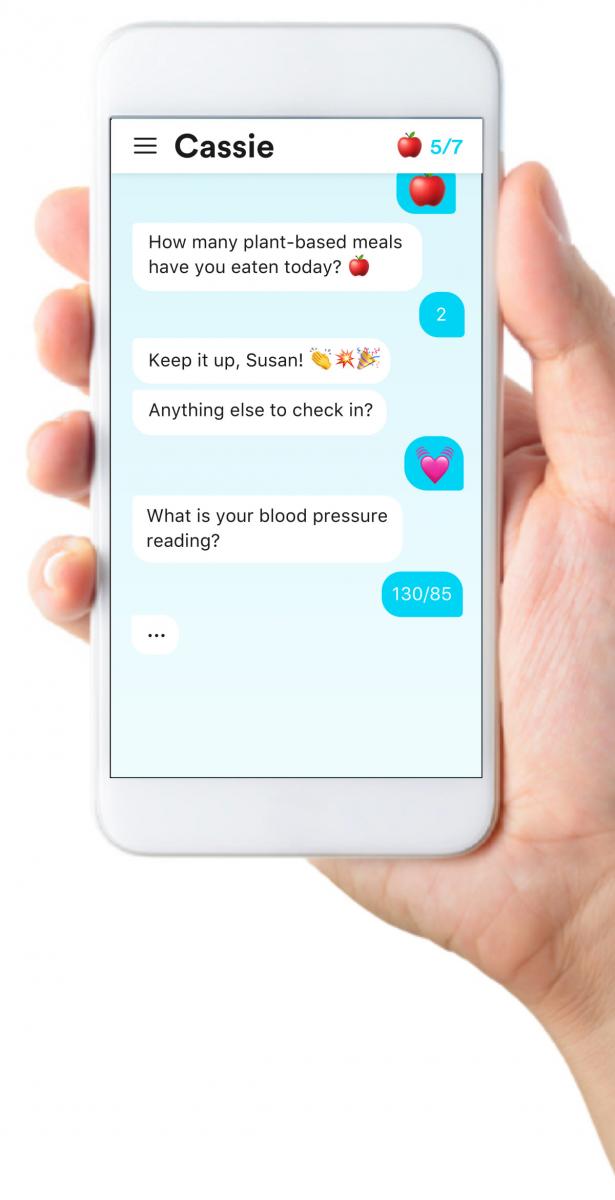 San Francisco-based FareWell is changing its name to Better Therapeutics, a rebranding that reflects the company’s shift in focus from weight loss and disease prevention to digital therapeutics to treat chronic diseases. To punctuate that shift, Better Therapeutics is announcing the name change on the same day as the publication of a study in the Journal of Medical Internet Research that demonstrates the company’s technology can reduce HbA1c in people with Type 2 diabetes.
San Francisco-based FareWell is changing its name to Better Therapeutics, a rebranding that reflects the company’s shift in focus from weight loss and disease prevention to digital therapeutics to treat chronic diseases. To punctuate that shift, Better Therapeutics is announcing the name change on the same day as the publication of a study in the Journal of Medical Internet Research that demonstrates the company’s technology can reduce HbA1c in people with Type 2 diabetes.
“The big headline for us is we knew we could shift the behaviors among people at risk for disease. But now we’ve proven that a digital therapeutic can be as effective or more effective than currently prescribed drugs in the field of chronic disease,” Kevin Appelbaum, CEO of Better Therapeutics, told MobiHealthNews. “So we’re super excited about what we saw in this study. It’s given us the data we need to pursue an aggressive path to multiple FDA approvals across the dominant areas in chronic disease.”
The nonrandomized study included 118 individuals with Type 2 diabetes, recruited primarily via Facebook ads. They used Better Therapeutic’s app-based platform, which also included phone calls with health coaches, for 12 weeks.
“That app connected them with a personalized health coach and they began a 12 week program which we have described as ‘crawl, walk, and run’, where you get to engage in a series of modules to build health literacy through the acquisition of skills,” Applebaum said. “The skills are principally related to how they eat, how they incorporate exercise and activity into their daily life, and they work with their coach to identify sources of internal motivation and better manage sleep, stress, and social connectedness.”
The participants, primarily women in their 40s and 50s, had an average HbA1c of more than 6.5 percent. They reduced it by 0.8 percent on average. Fifty-eight point eight percent of participants had a clinically significant reduction.
Participants interacted with the app an average of 4.3 times a day and more than 86 percent stuck with the app for the full 12 weeks. Those who were more engaged also tended to have better outcomes.
“The magnitude of HbA1c reduction observed was comparable to those found with commonly prescribed medications and successful intensive lifestyle interventions delivered in person,” study authors wrote. “In addition, a meaningful percentage (28 percent, 22/97) of participants achieved an HbA1c value below the diabetic range, 23 percent (5/22) of whom reported no diabetic medication use, indicating potential for partial or complete remission of diabetes as defined by the American Diabetes Association consensus definition. However, the short duration of this trial and lack of knowledge of the temporal sequence of lab test versus medication change does not allow us to evaluate remission status.”
The “Better” in Better Therapeutics is an allusion to the company’s conceit that digital therapeutics can work as well as or better than medications for managing chronic conditions that have behavioral causes.
“We’ve made a very clear decision to compete in the therapeutic space as a prescription digital therapeutic,” Applebaum said. “So frankly we outgrew where we could go with FareWell and we needed a name that better captured our vision for the future and Better Therapeutics is where we ended up for many reasons, not only that it squarely positions the company in the therapeutic space, but tying into our core belief that there has to be a better way to treat chronic disease than what we’ve been doing for decades because what we’ve been doing for decades doesn’t work.”















